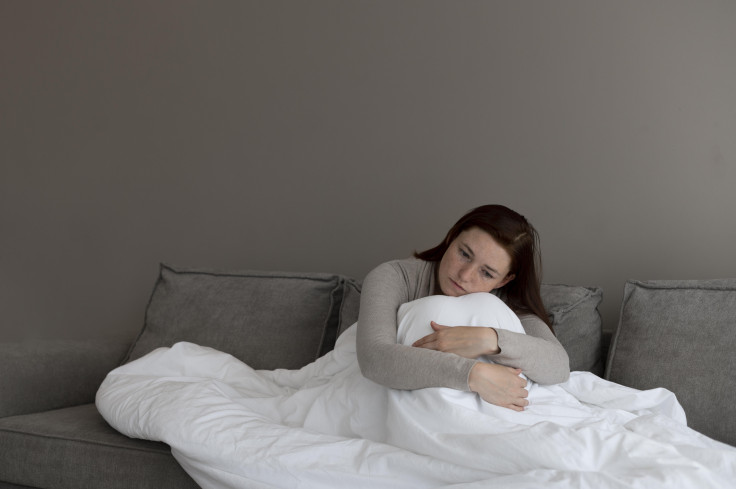Stress During Adolescence May Up The Risk Of Postpartum Depression In Adulthood: Study

Stress during adolescence may raise the risk of postpartum depression in adulthood, a recent study has revealed.
Postpartum depression (PPD) is a complex mix of physical, emotional, and behavioral changes that happen in one out of 10 women after delivery. It is believed to be caused due to factors such as chemical, social, and psychological changes related to delivery.
"PPD is difficult to treat," said senior study author, Dr. Akira Sawa, from the Johns Hopkins University School of Medicine. "Unfortunately, everyone knows someone who has suffered or currently suffers from PPD, and it has such a huge impact on both mother and baby."
According to the results of the latest mice study published in the journal Nature Mental Health by the research team from Johns Hopkins Medicine, social stress during adolescence in female mice later results in prolonged elevation of the hormone cortisol after they give birth.
Based on the increased hormone levels observed in the mice study, researchers suggest that similar hormonal changes could be expected in postpartum women who had adverse early life experiences. These findings imply that early life stress could contribute to the worsening of postpartum depression from a pathophysiological standpoint.
For conducting experiments, the researchers grouped mice into four: unstressed virgins, stressed virgins, unstressed mothers, and stressed mothers. Stressed mice were isolated during their teen years, and all the groups were checked for their stress levels. A week after giving birth, he stressed mothers showed signs of depression, such as reduced movement and less interest in sugar, which lasted for at least three weeks post-delivery.
The researchers then measured hormone levels and found that cortisol was higher in mothers with or without early life stress. However, in unstressed mothers, cortisol returned to normal levels after birth, while in stressed mothers the levels were high for one to three weeks after delivery. This suggests a link between extended post-birth cortisol elevation and behavioral changes in postpartum mice that experienced teen social isolation.
The current treatment strategy for postpartum depression involves the use of a class of anti-depressant pills called selective serotonin reuptake inhibitors (SSRIs). However, around one-third of psychiatric conditions fail to respond to current therapies.
The latest findings suggest that existing drug therapies for postpartum depression may not always effectively address the specific chemical imbalances in the brain and in such cases, alternative methods may be more beneficial.
"If these findings translate to humans, it could mean that a different kind of antidepressant, a glucocorticoid receptor (GR) antagonist, which blocks the effects of elevated cortisol, could be a novel treatment option for PPD. Mifepristone may be one such drug," the news release stated.
"The new study results add to evidence that patients with postpartum depression are not all the same, and more individualized diagnosis and treatment -- a precision medicine approach -- is needed," Sawa said.
"The alternative line of treatment suggested by the mouse study -- where the findings are consistent with those from our observational study in humans -- might enable mothers to be treated at home and avoid separation from their babies, and target a different mechanism for depression that may be specific to postpartum depression," Sawa added.



























